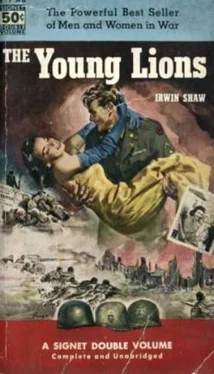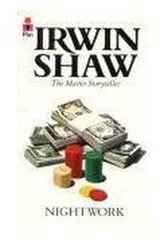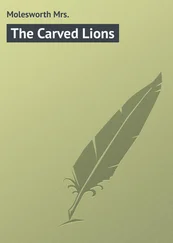Irwin Shaw - The Young Lions
Здесь есть возможность читать онлайн «Irwin Shaw - The Young Lions» весь текст электронной книги совершенно бесплатно (целиком полную версию без сокращений). В некоторых случаях можно слушать аудио, скачать через торрент в формате fb2 и присутствует краткое содержание. Жанр: Классическая проза, на английском языке. Описание произведения, (предисловие) а так же отзывы посетителей доступны на портале библиотеки ЛибКат.
- Название:The Young Lions
- Автор:
- Жанр:
- Год:неизвестен
- ISBN:нет данных
- Рейтинг книги:4 / 5. Голосов: 1
-
Избранное:Добавить в избранное
- Отзывы:
-
Ваша оценка:
- 80
- 1
- 2
- 3
- 4
- 5
The Young Lions: краткое содержание, описание и аннотация
Предлагаем к чтению аннотацию, описание, краткое содержание или предисловие (зависит от того, что написал сам автор книги «The Young Lions»). Если вы не нашли необходимую информацию о книге — напишите в комментариях, мы постараемся отыскать её.
The Young Lions — читать онлайн бесплатно полную книгу (весь текст) целиком
Ниже представлен текст книги, разбитый по страницам. Система сохранения места последней прочитанной страницы, позволяет с удобством читать онлайн бесплатно книгу «The Young Lions», без необходимости каждый раз заново искать на чём Вы остановились. Поставьте закладку, и сможете в любой момент перейти на страницу, на которой закончили чтение.
Интервал:
Закладка:
The truck started down the street. Christian got into the small car with Lieutenant von Schlain and followed it through the streets of dawning Paris towards SS Headquarters.
CHAPTER THIRTY
THERE was something wrong about the town. There were no flags hanging out of the windows, as there had been in all the towns along the way from Coutances. There were no improvised signs welcoming the deliverers, and two Frenchmen who saw the jeep ducked into houses when Michael called to them.
"Stop the jeep," Michael said to Stellevato. "There's something fishy here."
They were on the outskirts of the town, at a wide intersection of roads. The roads, stretching bleakly away in the grey morning, were cold and empty. There was no movement to be seen anywhere, only the shuttered windows of the stone houses, and the vacant roads with nothing stirring on them. After the crowded month, in which almost every road in France had seemed to be jammed with tanks and half-tracks and petrol lorries and artillery pieces and marching men, in which every town had been crowded with cheering Frenchmen and women in their brightest clothes, waving flags hidden through all the years of the Occupation, and singing the Marseillaise, there was something threatening and baleful about the dead silence around them.
"What's the matter, Bo?" Keane said from the back seat.
"Did we get on the wrong train?"
"I don't know," Michael said, annoyed at Keane. Pavone had told him to pick up Keane three days ago, and Keane had spent the three days in mournful chatter about how timidly the war was being run, and how his wife kept writing to him that the money she was getting was not enough to keep a family alive with prices going up the way they were. By now, the prices of chopped meat, butter, bread and children's shoes were indelibly engraved in Michael's brain, thanks to Keane. In 1970, if somebody asks me how much hamburger cost in the summer of 1944, Michael thought irritably, I'll answer, sixty-five cents a pound, without thinking for a second.
He got out the map and opened it on his knees. Behind him he heard Keane snapping the safety-catch off his carbine. A cowboy, Michael thought, staring at the map, a brainless, bloodthirsty cowboy…
Stellevato, slouched in the front seat beside him, smoking a cigarette, his helmet tipped far back on his head, said, "Do you know what I could use now? One bottle of wine and one French dame." Stellevato was either too young, too brave, or too stupid to be affected by the autumnal, dangerous morning, and by the unusual, unliberated aspect of the buildings in front of them.
"This is the place, all right," Michael said, "but it certainly doesn't look good to me." Four days before, Pavone had sent him back to Twelfth Army Group with a bagful of reports on a dozen towns they had inspected, reports on the public-utility situations, the food reserves, the number of denunciations of the incumbent civil officials that had been made by the local people. After that, he had ordered Michael to report back to him at the Infantry Division's Headquarters, but the G3 there had told Michael that Pavone had left the day before, leaving instructions for Michael to meet him in this town the next morning. A combined armoured and mechanized task force was to have reached the town by ten hundred hours and Pavone was to be with them.
It was eleven o'clock now, and apart from a small sign that read WATER POINT in English, with an arrow, there was no hint that anyone speaking English had been there since 1919.
"Come on, Bo," Keane said. "What're we waiting for? I want to see Paris."
"We don't have Paris," Michael said, putting the map away, and trying to make some sense out of the empty streets before him.
"I heard over the BBC this morning," Keane said, "that the Germans've asked for an armistice in Paris."
"Well, they haven't asked me," Michael said, sorry that Pavone wasn't with him at this moment to take on the burden of responsibility. The last three days had been pleasant, riding round the festive French countryside as commander of his own movements, with no one to order him about. But there was no celebrating going on here this morning, that was certain, and he had an uneasy sensation that if he guessed wrong in the next fifteen minutes, they might all be dead by noon.
"The hell with it." Michael nudged Stellevato. "Let's see what's happening at the Water Point."
Stellevato started the jeep and they went slowly down a side street towards a bridge they could see in the distance, crossing a small stream. There was another sign there, and a big canvas tank and pumping apparatus. For a moment, Michael thought that the Water Point, together with the rest of the town, was deserted, but he saw a helmet sticking cautiously up from a foxhole covered with branches.
"We heard the motor," said the soldier under the helmet. He was pale and weary-eyed, young and, as far as Michael could tell, frightened. Another soldier stood up next to him and came over to the jeep.
"What's going on here?" Michael asked.
"You tell us," said the first soldier.
"Did a task force go through here at ten o'clock this morning?"
"Nothing's been through here," the second soldier volunteered. He was a pudgy little man, nearly forty, who needed a shave badly, and he spoke with a hint of a Swedish singsong in his voice. "Fourth Armoured Headquarters went through last night and dropped us off here and turned south. Since then it's been lonely. There was some shooting near dawn from the middle of the town…"
"What was it?" Michael asked.
"Don't ask me, Brother," said the pudgy man. "They put me here to pump water out of this creek, not to conduct private investigations. These woods're full of Krauts and they shoot the Frogs and the Frogs shoot them. Me, I'm waiting for reinforcements."
"Let's go into the middle of the town and look around," Keane said eagerly.
"Will you shut up?" Michael swung round and spoke as sharply as he could to Keane. Keane, behind his thick glasses, grinned unhappily.
"Me and my buddy here," the pudgy soldier said, "have been debating whether maybe we ought to pull out altogether. We ain't doing anybody any good sitting here like ducks on a pond. A Frog came by this morning, he spoke some English, and he said there was eight hundred Krauts with three tanks on the other side of town, and they was going to come in here and take the town some time this morning."
"Happy days," Michael said. That was why there had been no flags.
"Eight hundred Krauts," Stellevato said. "Let's go home."
"Do you think it's safe here?" the pale-faced young soldier asked Michael.
"Just like your own living-room," said Michael. "How the hell would I know?"
"I was just asking a question," the young soldier said reproachfully.
"I don't like it," said the man with the Swedish accent, peering down the street. "I don't like it one bit. They got no right leaving us like this, all by ourself, sitting next to this goddamn creek."
"Nikki," Michael said to Stellevato. "Turn the jeep round and leave it on the road, so we can get away from here fast if we have to."
"What's the matter?" Keane asked, leaning towards Michael.
"Got your wind up?"
"Listen, General Patton," Michael said, trying to keep the annoyance out of his voice, "when we need a hero, we'll call on you. Nikki, turn that jeep around."
"I wish I was home," Stellevato said. But he got into the jeep and turned it round. He unhooked his tommy-gun from under the windshield and blew vaguely on it. It was coated with dust.
"What're we going to do, Bo?" Keane asked. His big blotched hands moved eagerly on his carbine. Michael looked at him with distaste. Is it possible, Michael thought, that his brother won the Congressional Medal of Honour out of sheer stupidity?
Читать дальшеИнтервал:
Закладка:
Похожие книги на «The Young Lions»
Представляем Вашему вниманию похожие книги на «The Young Lions» списком для выбора. Мы отобрали схожую по названию и смыслу литературу в надежде предоставить читателям больше вариантов отыскать новые, интересные, ещё непрочитанные произведения.
Обсуждение, отзывы о книге «The Young Lions» и просто собственные мнения читателей. Оставьте ваши комментарии, напишите, что Вы думаете о произведении, его смысле или главных героях. Укажите что конкретно понравилось, а что нет, и почему Вы так считаете.











